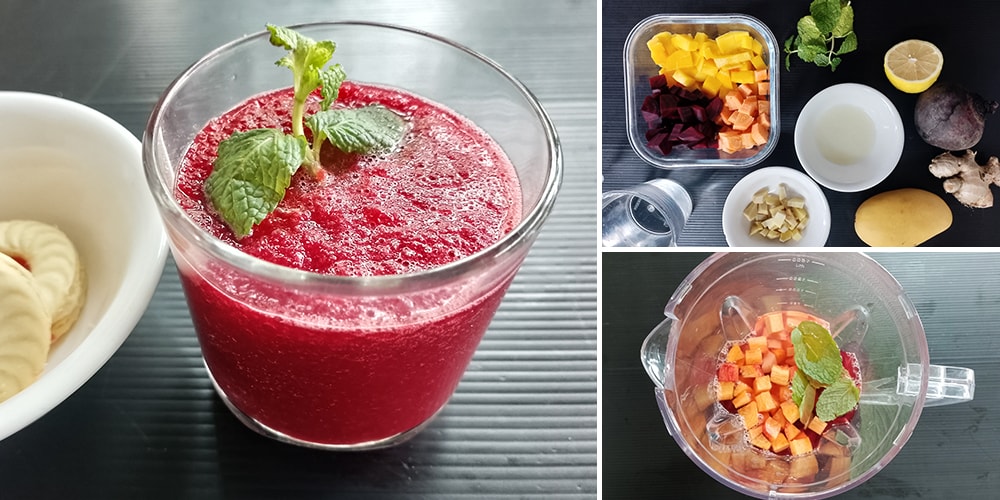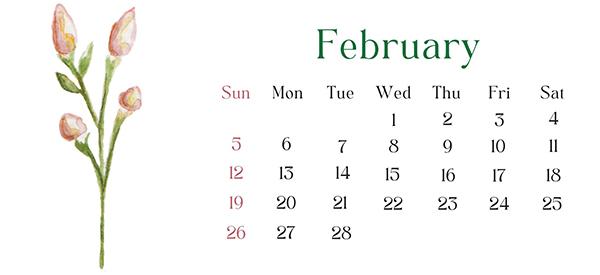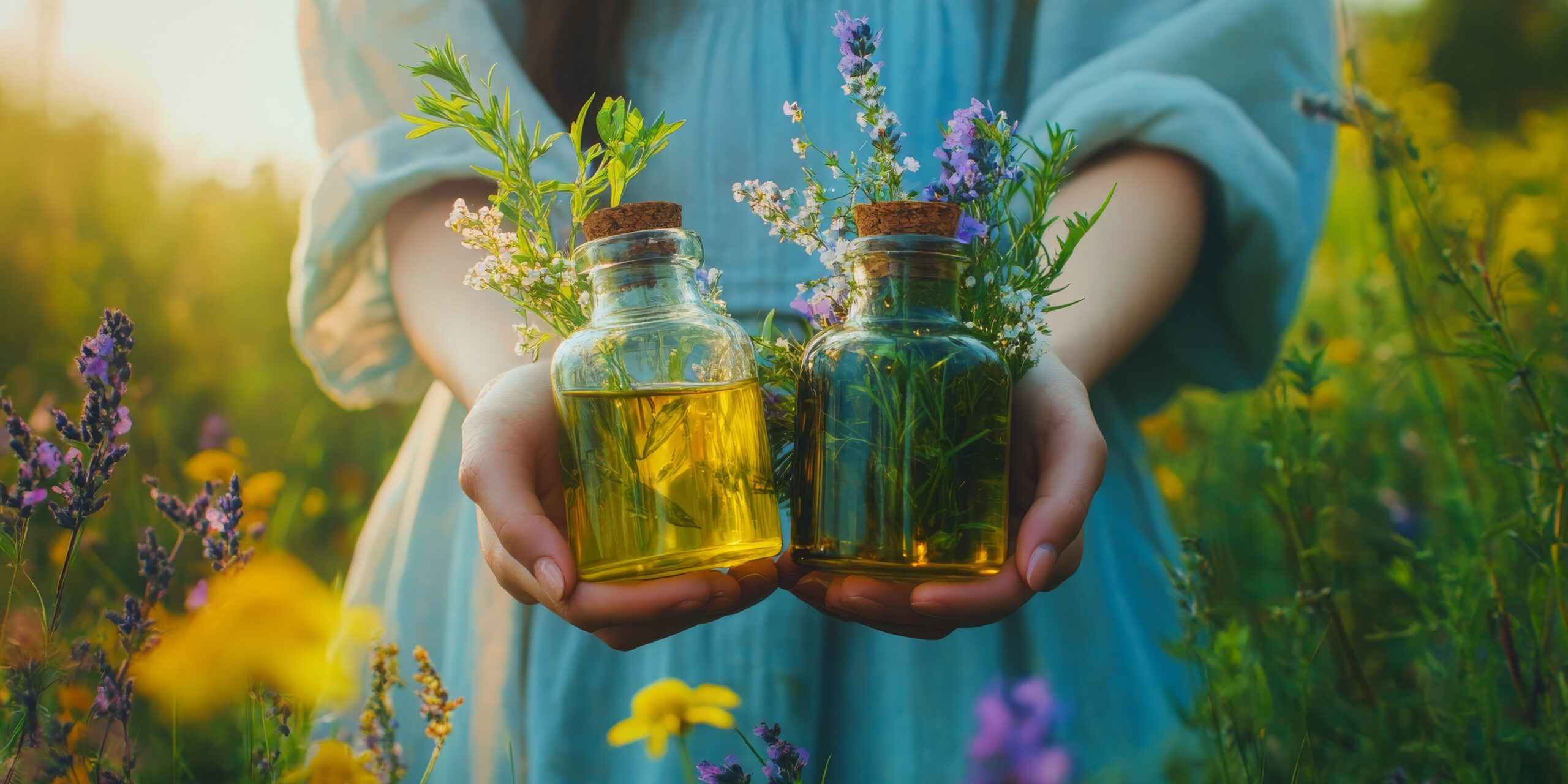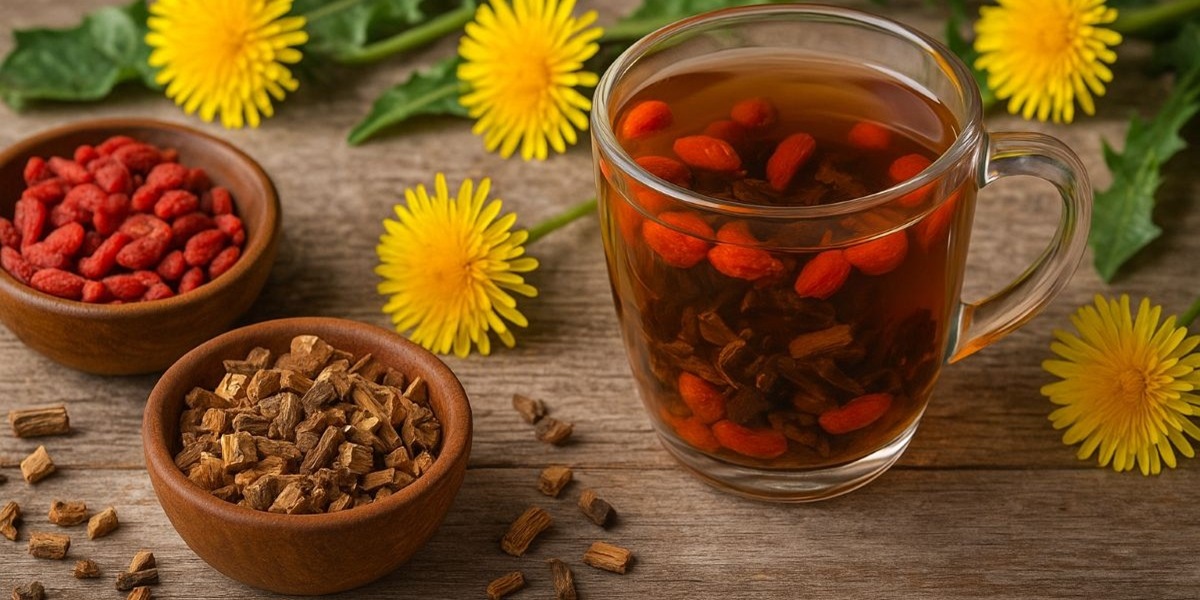
Dandelion Wolfberry Tea: A Restorative Blend for Daily Vitality
Herbal teas are more than simple comfort drinks—they often carry centuries of wisdom in each cup. One blend that deserves more recognition is dandelion wolfberry tea, a pairing that combines the everyday resilience of the dandelion with the nourishing strength of wolfberries, also known as goji berries. Together, these two ingredients form a tonic that is both soothing and revitalizing, balancing modern needs with traditional practices.
Many people see dandelions as stubborn weeds, yet herbalists have long understood their power to support liver function, digestion, and cleansing. Wolfberries, on the other hand, have been treasured in Traditional Chinese Medicine for boosting energy, eyesight, and immunity. When brought together, these plants complement each other perfectly—one grounding and cleansing, the other uplifting and fortifying. The result is a tea that offers more than flavor; it delivers wellness in every sip.
Benefits of Dandelion Wolfberry Tea
1. Liver and Detox Support
Dandelion root is one of the most respected herbal tonics for the liver. By stimulating bile flow and encouraging healthy detoxification, it allows the body to clear out waste more effectively. Wolfberries bring antioxidants that protect the liver from oxidative stress, making this tea a valuable daily ally for maintaining a clean internal system.
Related: DIY Herbal Detox Pastilles (Remove Pounds of Toxins from Your Body With These 3 Ingredients)
Historically, dandelion has been used in Europe for centuries as a “spring tonic,” taken after long winters to revive sluggish digestion and purify the blood. Wolfberries, meanwhile, were once reserved for emperors in ancient China, where they were believed to bring vitality and longevity. This pairing bridges two traditions, both seeking renewal through natural plants.
For people living fast-paced modern lives, this gentle support is invaluable. Even small amounts of environmental toxins, stress, and processed foods take their toll over time. A daily cup of this tea acts as a quiet, consistent safeguard, giving the body the help it needs without harshness.
2. Rich in Antioxidants
Wolfberries are renowned for their antioxidant content, particularly zeaxanthin, which protects cells from free radical damage. Dandelion leaves and roots also contribute flavonoids and phenolic compounds, creating a blend that actively defends the body at a cellular level.
Ancient Chinese physicians often prescribed wolfberries as part of formulas for strengthening the “jing,” or essence of life. Meanwhile, dandelion appeared in medieval European apothecaries as a remedy for inflammation and fevers. Both plants earned respect across continents for their ability to preserve vitality.
Related: 7 Plants To Manage Your Chronic Inflammation
This high concentration of antioxidants is especially beneficial for long-term wellness. Regular consumption of dandelion wolfberry tea may help reduce the risks associated with chronic oxidative stress, including inflammation and premature aging. It’s a natural way to protect vitality without relying on synthetic supplements.
3. Blood Sugar and Energy Balance
Dandelion is valued for its potential to support balanced blood sugar, and wolfberries have shown similar effects in traditional use. Together, they help the body avoid sudden spikes and crashes, offering steadier energy levels throughout the day.
In rural China, wolfberries were often consumed by farmers during long days in the fields, as they believed the berries improved stamina and endurance. Similarly, European herbalists recommended dandelion for those weakened by fatigue or sluggish digestion. When combined, the two plants provide balanced nourishment that sustains energy without overstimulation.
Related: Signs You Are Addicted To Sugar
Over time, this steady energy makes a difference. It reduces reliance on stimulants like coffee or sugar, and it promotes a more natural rhythm in daily life. For those seeking long-term stability rather than short-term boosts, dandelion wolfberry tea provides an ideal solution.
4. Skin and Eye Health
Wolfberries are famous for their ability to nourish the eyes, thanks to high levels of carotenoids like zeaxanthin. Dandelion, meanwhile, has a long history of use in soothing skin irritations and reducing inflammation. Together, they offer a tea that benefits both outward appearance and inner health.
Chinese dynasties prized wolfberries as a tonic for the eyes and skin, linking them to youthful vitality and clarity of vision. In Europe, dandelion poultices were applied to skin eruptions, while teas were used to “clear the blood,” reflecting the belief that beauty and skin health came from within.
Related: Why You Should Rub Honey On Your Skin
Skin health is often a reflection of internal balance, and this tea works on both levels. By supporting digestion, circulation, and detoxification, it encourages a clear complexion while protecting the delicate tissues of the eyes. It’s a gentle yet effective way to enhance vitality from the inside out.
5. Immune Boosting
Both dandelion and wolfberry are recognized for strengthening the immune system. Dandelion provides minerals like potassium and iron, while wolfberries deliver a potent dose of vitamins A and C. Combined, they prepare the body to resist seasonal illnesses and recover more quickly from fatigue.
In traditional Chinese medicine, wolfberry was used to strengthen the body during times of weakness and to protect against lingering illnesses. Likewise, dandelion was a staple in folk remedies across Europe, where it was brewed in teas and broths to fortify the body through seasonal transitions. These historical practices highlight the plants’ long-standing reputation for supporting resilience.
Related: Anti-Inflammatory Diet for Autoimmune Conditions
The immune support from this tea is not overwhelming or harsh; instead, it builds strength gradually. This makes it suitable for daily use without concern for overstimulation. It nourishes rather than pushes, which is the hallmark of good herbal medicine.
 How to Make Dandelion Wolfberry Tea
How to Make Dandelion Wolfberry Tea
Making this restorative tea is simple and requires only a few steps:
Ingredients:
- 1 tablespoon dried dandelion root (or 1–2 teaspoons dried dandelion leaves for a lighter flavor)
- 1 tablespoon dried wolfberries (goji berries)
- 2 cups hot water
Instructions:
- Simmer the dandelion root in water for 10 minutes. If using leaves, steep them in hot water instead.
- Add wolfberries and let them steep for an additional 5 minutes.
- Strain, and drink warm. You can even eat the softened wolfberries at the bottom of your cup for added nutrition.
Optional additions include a slice of fresh ginger for digestion or a drizzle of honey for sweetness.
Comparison With Other Herbal Teas
| Tea Blend | Key Benefits | Best For |
| Dandelion Wolfberry | Liver health, blood sugar balance, immune strength | Daily restorative tonic |
| Dandelion & Mint | Digestive aid, cooling, refreshing | After heavy meals |
| Wolfberry & Chrysanthemum | Eye health, calming, antioxidant boost | Evening relaxation |
| Dandelion & Ginger | Detox, circulation, warming | Cold seasons |
Dandelion wolfberry tea stands out because it balances cleansing with nourishment. Many detox blends focus heavily on purging, which can leave the body drained. This tea, however, combines detoxification with rich antioxidant and nutritional support, creating a more sustainable tonic for everyday use.
For those who enjoy seasonal variations, dandelion and ginger tea is warming and circulatory, making it ideal for colder months. Yet dandelion wolfberry tea offers the most balanced year-round tonic, supporting multiple systems at once. Its unique ability to both cleanse and strengthen makes it stand apart from other herbal combinations.
Final Thoughts
Dandelion wolfberry tea is more than just a pleasant drink—it’s a reminder of how simple plants can provide profound support when used wisely. Each sip reflects centuries of herbal tradition, offering a balance of detoxification, nourishment, and vitality.
What makes this tea especially valuable is its accessibility. Dandelions grow freely in fields and backyards, while wolfberries are increasingly available in health shops and online. Together, they create a blend that’s affordable, sustainable, and adaptable to daily life.
For anyone seeking to build resilience naturally, dandelion wolfberry tea provides a straightforward and dependable solution. It’s not about quick fixes or dramatic effects but about cultivating steady wellness over time. In the end, that is the true power of herbal medicine: consistency, simplicity, and trust in the healing gifts of nature.
A Simple Tea Is Just the Beginning
Dandelion wolfberry tea shows how much can be achieved with a few humble plants, but it’s only the beginning of what’s possible. Once you learn how to combine simple herbs, you realize your kitchen and garden hold countless remedies that support digestion, immunity, sleep, energy, and so much more.
That’s exactly what you’ll find in The Forgotten Home Apothecary. This book gathers time-tested recipes for tinctures, teas, and salves you can make at home with ingredients you likely already have. From calming nerves with lemon balm to easing sore joints with turmeric and ginger, it teaches you to take control of your health naturally.
You May Also Like:
Yerba Santa Tea: How to Make This Traditional Healing Brew
How to Recognize a Heart Attack and What to Do Next (Video)
Hawthorn Berry Tea: A Heart-Healthy Herbal Brew
The Best Tea for Colds: Soothing Brews to Help You Feel Better Fast

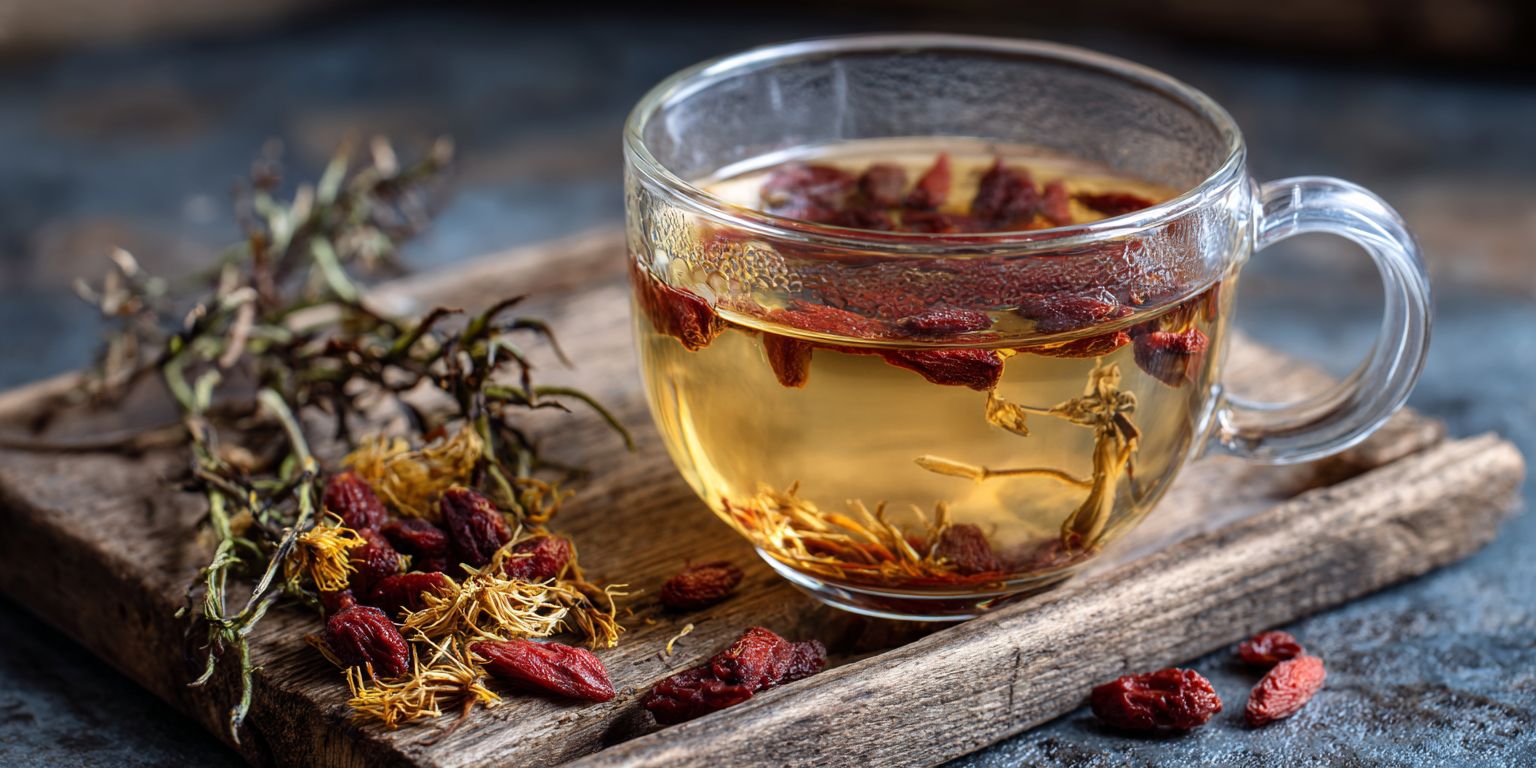 How to Make Dandelion Wolfberry Tea
How to Make Dandelion Wolfberry Tea
